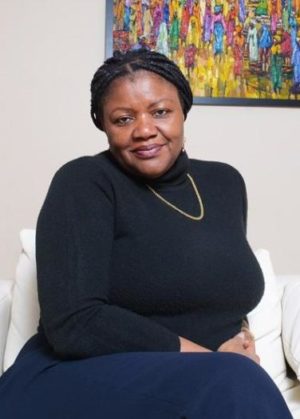
Book Review: Every Drop of Blood is Red
Umar Turaki, Little A Press, 2024, 231 pages.
by Ifeoma Chinwuba
Every Drop of Blood Is Red (EDBIR) is a James Bond thriller without James Bond. In the place of the famous sleuth, is a female protagonist, Murmula, whose revenge mission is no less poignant, to eliminate the bad man who caused her father’s disappearance, unleashing untold hardship upon her family, and to reinstate the oppressed victim. Her mother’s deathbed wish is the daughter’s compass, her roadmap. From this point of view, EDBIR is also Shakespearean in girth. Does it not remind of Hamlet, avenging a father’s death? Or of Mark Anthony, Caesar’s? The twists and turns that lead up to the climax or anti-climax depending on the reader, are but astute ways the author uses to delay denouement and whip up suspense.
The novel ticks a number of boxes. First the setting is new; Jos, in Nigeria’s Plateau State, the scene of many ethno-religious crises and bloodshed. Another tick is the novelty of a Moslem woman driving a story that pitches Christians against Moslems, a modern Queen Amina, perhaps? When we posit that writers are a product of their milieu, that they do not write in a vacuum, EDBIR buttresses that assertion. When BIPOC authors are afforded the opportunity to craft their stories wherever they be, the end-product expands the field, widens the horizon and spreads understanding of our very diverse universe.
EDBIR takes us not just to, but into the Jos metropolis, Rayfield, Farin Gada, Rukuba, and its environs, Bauchi Road, Vom etc. We make the acquaintance of the Ngas, and their neighbours, as well as their culture, history, names, food, the things churning within them. We meet the Pamsons household. We meet the other camp, the ‘enemy’, Murmula, Ishat, Gogo Hauwawu, and the subterranean cleavages that characterise daily inter-ethnic interaction in the Plateau. We meet people ingesting kunu, dogmeat, miyan taushe, masa, etc. and their language, English interspersed with Hausa; (You came early, fa. P 39) From this perspective, the author is a chronicler of the zeitgeist of our times, capturing the ethos of post-crisis Jos for all time.
The novel boasts many levels, or if revenge is a repast that must be devoured cold, many side dishes, ante paste as Italians would say. These sidesteps do not detract from the suspense and poignancy of the main quest, because they allow the revenge dish to chill. These include inter alia, issues of women empowerment; a budding romance across enemy lines, and the paternity of an unborn child. I see these side-shows as the attempt by the author to give heft to the characters and to the narrative.
Style-wise, the novel is divided into a Before and After, postmarking a mysterious and mystifying gamechanger in the narrative. It is a religious event that turns the novel around, a watershed happening that inexorably changes the trajectory of the story. Turaki ably handles this tenuous occurrence. In its telling, he shows himself in control of the reins and masterfully brings all the loose ends together in the end.
EDBIR’s robust language conjures to life the scenarios. For example:
The clouds gathered round the sun like an angry mob, and erased its existence (p.21)
The drops were tiny angry fists pounding on the umbrella. P. 23
Though it is a linear narrative, the author uses epistolary and flashback to fill in gaps. A profuse recourse to text messaging is a testament to the novel’s modernity.
What is the flip side?
I expected to see a glossary of the Hausa words used, like, mana (p. 151 ), Ba komai, (p.40) toh (p.82) lafiya (p.68) ina wuni (p.84) kenan (p.89) ai (p.217), etc. This would definitely have aided the reader’s understanding. With the advancements in technology, books, particularly e-books, have become democratic, available to all. Readership is quasi global these days. Yes, Google is at hand to translate foreign words. In essence, the author is not to do all the work alone; the reader must collaborate with the writer in the book project.
Ms. Ifeoma Chinwuba was the 2021-2022 Writer-in-Residence of the Department of English and Film Studies, University of Alberta, Edmonton. A retired diplomat, she is the author of five books, made up of novels, poetry in dialogue, and a juvenile novella. Her “Merchants of Flesh” and “Waiting for Maria” have, at different times, won the Prose Prizes of the Association of Nigerian Authors (ANA), while “Waiting for Maria” was on the Long-list of The Commonwealth Writers Prize, 2008. Ms. Chinwuba’s latest novel, Sons of the East, was released in November, 2023, by Griots Lounge Publishers and is on the shortlist of: The Fred Kerner Prize 2024; Association of Nigerian Authors (ANA) Prose Prize 2024.
Email: ifeomachinwuba.com Web: Ifeomachinwuba.com Website: Ifeomachinwuba.com
Chinwuba’s Sons of the East (ANA Prose Prize 2024; Chinua Achebe Literary Prize 2024, shortlist Fred Kerner Canlit Prize 2024) is available online.
